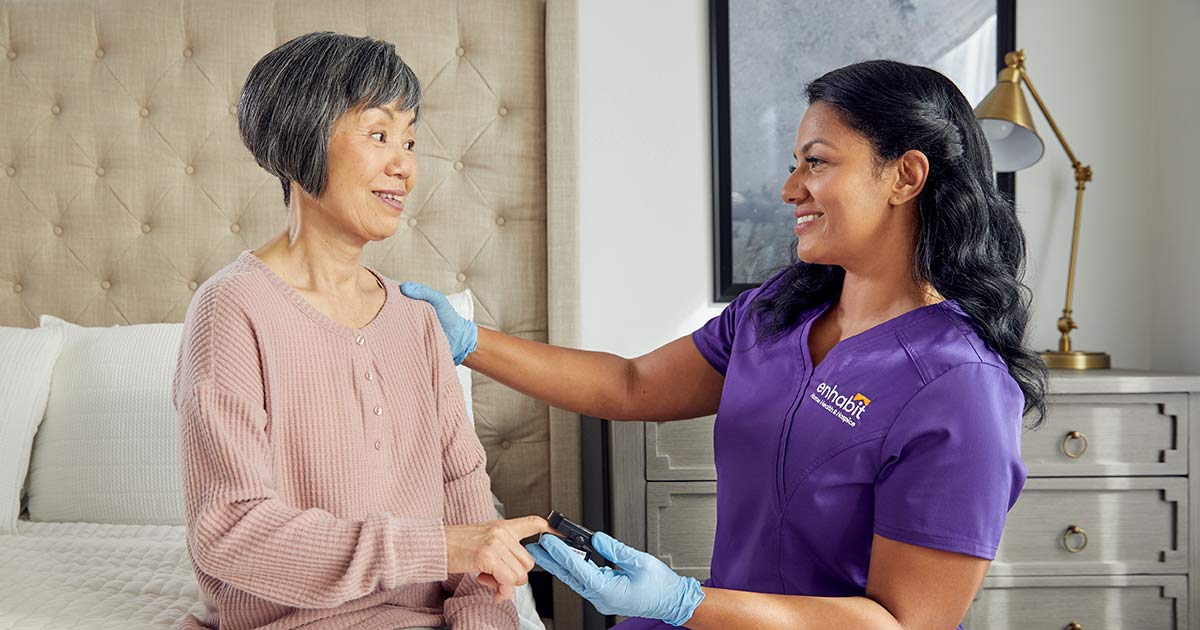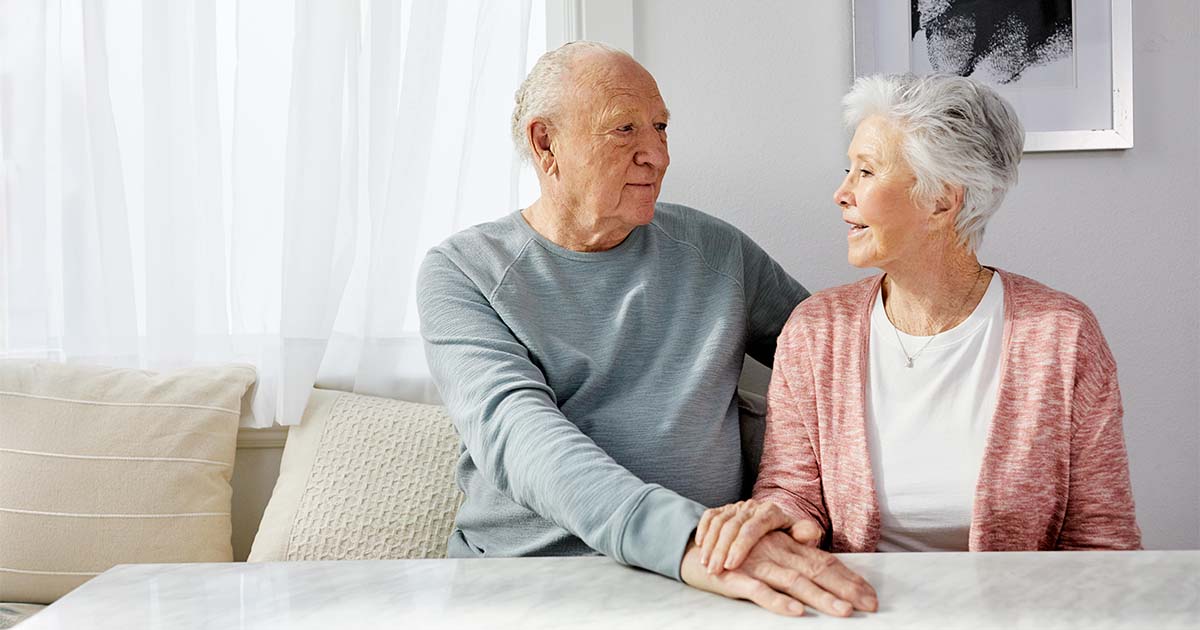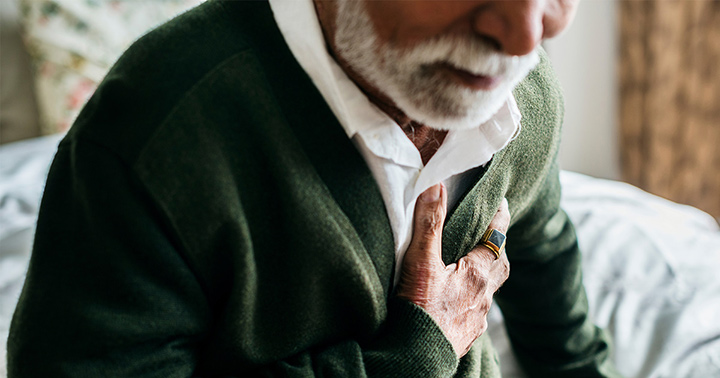When a patient or family member is determining who they’d like to manage their or their loved one’s health care, they’re likely to ask around for other patient and caregiver experiences and opinions. If someone in their circle recommends a certain provider based on their positive experience, it’s likely they will try them out as well.
“Clinical excellence is the secret sauce to providing high-quality care,” Enhabit Home Health & Hospice’s Vice President of Clinical Excellence Patricia D’Arena said. “At Enhabit, we have a clinical excellence team dedicated to both home health and hospice. This team strives to be a foundational impact within the organization by supporting clinicians and leaders in facilitating high-quality and patient-focused care, which will always lead to a positive patient and caregiver experience.”
What is patient experience?
According to the U.S. Department of Health and Human Services’ Agency for Healthcare Research and Quality, patient experience is “the range of interactions that patients have with the healthcare system.” This encompasses hospitals, doctors, nurses, health plans and home-based care systems.
The quality of health care relies heavily on patient experience. This is because it measures several aspects of one’s care deemed highly important to patients and their loved ones. These aspects include things such as timeliness with appointments, ease of access to information and open lines of communication with their health care teams.
“Patient and caregiver experience is truly a reflection of how patients and caregivers feel about the services provided to them as well as how we resonded to the needs of everyone involved in their care,” D’Arena said.
Patient experience has a bigger impact on care than one may think. Having a positive experience has the potential to result in better health outcomes for the patient themselves.
How is patient or caregiver experience measured?
Medicare-certified agencies are required to measure the experience of a patient or their caregivers via the Consumer Assessment of Healthcare Providers and Systems (CAHPS) survey.
The CAHPS survey focuses on the parts of a patient’s interaction with health care providers that are most important to them. Patient satisfaction is different than patient experience. The CAHPS survey does not measure if a patient’s expectations were met but rather how they were met.
The results of the CAHPS survey provide reliable, standardized and validated measures of patient experience to deliver an overall assessment of a provider’s care. This helps them learn opportunities for improvement. Additionally, the survey gives patients and their loved ones more information so they can make the wisest decisions about what’s best for their unique needs.
Home health settings
When a patient opens their home to a health care professional, their experience and the experience of their loved ones is crucial to understand.
“Patient experience has a significant impact on patient care,” D’Arena said. “When patients are having a great experience, they are more likely to be compliant with the guidance and education given to them by their provider. This, in turn, means they’re more likely to have better outcomes and avoid hospitalizations.”
With home health care, clinicians focus on providing personalized care in the home. This helps patients meet their goals without having to get out and go to multiple appointments. Clinicians bring the care to the patient, helping them to actively manage their own recovery along the way.
“Our home health physical therapist was a real blessing. She was kind and compassionate, encouraging me to keep going but never judgmental nor unkind when I could not complete tasks. I am grateful for her help. I will definitely use this agency again for my health care needs.”

Hospice settings
In contrast to home health care, hospice care focuses on providing comfort and dignity at the end of life. Hospice care is for patients who are facing an advanced, life-limiting illness.
Hospice clinicians focus on supporting patients and families with their physical, emotional, spiritual and psychological needs. Enhabit focuses on the lasting impact that their care will have on patients and their loved ones.
“The hospice care we received at Enhabit was excellent. The communication was good, supplies were prompt and there was good training on what to do and what to expect. We had a great experience with our hospice team. They were extremely helpful, thoughtful, prompt and professional. They allowed our father to transition with dignity and peace.”

The importance of patient experience
Patient experience is a foundational piece of health care. If a patient and/or caregiver has a good experience, they’re likely to recommend the provider to others and have better outcomes overall.
The commitment to providing an excellent and meaningful experience for patients and caregivers starts with our compassionate clinicians, according to D’Arena.
“Our teams at Enhabit are devoted to ensuring there is a solid plan and process to elevate clinical quality and patient and caregiver experience,” she said. “Twice a year, we celebrate patient and caregiver experience month. This means celebrating our clinicians for providing the excellent experience and leaning into what an excellent and dignified experience means for our patients, caregivers and outcomes.”
Social Share
At Enhabit our patients are our number one priority. From providing the latest medical practices to building deep personal connections, we’re focused on upholding every patient’s dignity, humanity and sense of control on their health care journey.
Home health
Our home health services give patients access to the care they deserve in the comfort of their own homes. From disease and injury management to recovery from surgery, our clinicians help patients confidently achieve their healthcare goals.
Hospice care
Our hospice care services place importance on the comfort of every patient living with a terminal illness. Our caring professionals are dedicated to providing not just physical care, but spiritual and emotional support to every patient and their loved ones.






